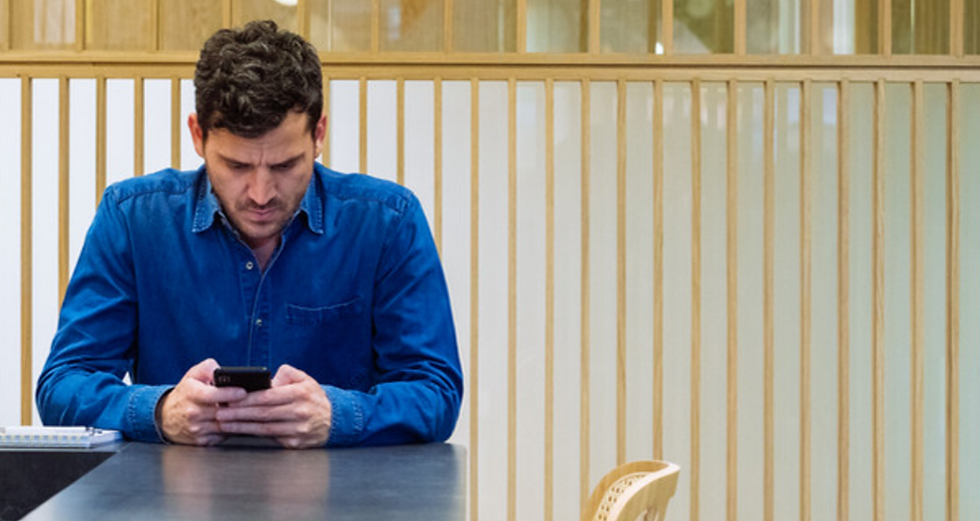How To Not Freak Out About Bed Bugs
- Oct 19, 2023
- 5 min read
Updated: Oct 23, 2025
France has been struck by a plague that is getting inside people's heads as well as their homes. But is the reality of bed bugs as terrifying as it seems? Here's how to stay calm amid the hysteria...

You can’t see them, but you know they’re there… Or at least you’re pretty sure they are. That bite must have come from somewhere. Did something get you on the metro? Or was it a mosquito? In late October? And hold on, you can definitely feel something scuttling under the bedsheets… You dart to switch on the lights and frantically tear off the covers… Nothing. Did it run away? How fast do the bastards move anyway? You try to get back to sleep, but dream fitfully of insects creeping stealthily over your body, injecting their mouthparts into your skin to feast on your blood, then retreating to multiply endlessly in the hidden recesses of your bedroom…
Bed bugs are nothing if not anxiety-provoking. And the recent outbreak across France means that fear of these gruesome critters is at an all-time high. However, while the prospect of a bed bug infestation is not a welcome one, it might just be possible to survive the epidemic of Cimex 23 without anxiety.
To deal with bed bug panic, let’s start with the basics of how anxiety works. Anxiety is the fear of some negative future outcome – in other words, a bad thing that could happen. Given that the future is, notoriously, uncertain, anxiety relies on speculation that boils down to two key questions: how likely is this bad thing to happen to me? And how bad will it be if it does? The intensity of your anxiety depends on your answers to these questions, and can be expressed in a simple formula:
Anxiety intensity = probability of bad thing X impact of bad thing
If something is probable but not that bad, such as being bumped into on the metro, you’re probably not going to stay at home to avoid it. Conversely, if something is very unlikely, but extremely bad, such as your refrigerator suddenly catching fire, you’re probably not going to lose sleep over it. To feel real anxiety, you need to think that something is both likely and awful.
So let’s bring it back to bed bugs… The media is crawling with news about these merry little ectoparasites, and this makes it seem pretty likely they could arrive chez toi. And you’ve also heard that the bites are horribly unpleasant, and that once you have an infestation, it’s nigh on impossible to get rid of them. So the impact also seems quite serious. High perceived likelihood, multiplied by high perceived impact, equals high anxiety. And that’s why everyone is freaking out about bed bugs.
_________________________________________________
Imagine yourself in a crowd of 37 people – a decently sized cocktail party… Only one person is going to be troubled by bed bugs this year.
_________________________________________________
But let’s have a closer look at how those two factors might be determined, starting with the first one. Our sense of the probability of an event relies generally on what evidence we have available around us. Widespread media hype around a subject thus tends to inflate the perceived likelihood of an event. It does this by taking advantage of what’s called an availability heuristic. This is a cognitive bias, or mental shortcut, whereby we base our estimates of probability on information that is readily available to us, rather than actual data.
For example, if you’re on beach holiday and have just read an article about a shark attack, this might make it feel like you’ll be the next victim, even though such attacks are extraordinarily rare (especially in Deauville). Similarly, the proliferation of bed bug news will boost our perceived likelihood of being victim of an infestation.
And so let’s tune out from the media bugstorm and examine the actual statistics... But before we do, ask yourself what you think is the probability that you personally will get bed bugs? Got a percentage ready in your head? OK, let’s crunch the numbers…
The latest survey for ANSES (the French National Agency for Food, Environmental and Occupational Health Safety) reveals that between 2017 and 2022, one in ten households in France reported bed bugs. We also know there has been a 65% rise in interventions this summer of 2023 compared to last year. It’s worth noting that many of these interventions are not for households, but from cinemas, offices, etc. And often a single intervention will cover an entire residential building. Frequently, these interventions are preventative, and are thus likely to inflate during times of bed bug hysteria.
But even if we generously assume each intervention is a real case, and give a similarly generous estimate of an average of two households per intervention, this will lead us to an estimate of 825,000 households affected in 2023. Given that there are 30 million households in France, the probability of a given household of getting bed bugs this year is approximately 2.7%, or a 1 in 37 chance. Imagine yourself in a crowd of 37 people – a decently sized cocktail party… Only one person is going to be troubled by bed bugs this year.
How does that compare to your original estimate? If you imagined it as more than 2.7%, you probably feel a bit relieved. If you thought it was even less likely, your anxiety might have grown. So for those who are still feeling nervous, let’s examine the other part of the equation: the impact of having bed bugs.
So you’ve got bed bugs. That’s a drag. But how much of a drag is it really? Let’s look at what happens in the case of an actual infestation. Provided you don't go down the unconventional path of cohabiting with them in insectoid-human symbiosis, you'll need to get the bugs exterminated. Most insect eradication services recommend two visits, while some claim only one is necessary (as any newly hatching bugs are killed by the chemicals left behind). You’ll also be advised to wash all your bedclothes and pillows at more than 60 degrees centigrade. After that… you’re basically done.
There are very rare cases when a whole building gets infested, and bed bugs return. But the probability of falling into one of those cases is extremely low. A more realistic consideration is that treatment can be quite expensive – around 7€ per square metre, or around 280€ for a 40 square metre apartment. But there is also sliding scale for larger spaces, such as houses, and you also often don’t need to have all rooms sprayed.
But if this talk of probability and impact seems a bit abstract, allow me to share my personal experience of having had bed bugs at my place last year. Once I’d noticed some telltale signs, I reached out to a company who showed up with an adorable fox terrier to sniff out the bugs, and then returned later for two thorough treatments. And while the few bites I received were quite unpleasant (from the bed bugs, not the fox terrier), the experience was overall about as harrowing as having my bathroom tiles regrouted. I’ve been blissfully bug-free ever since.
Of course, my experience represents a single case – and is purely anecdotal. However, I mention it to demonstrate that the fear of bed bugs tends to be more distressing than the actual reality: having bed bugs get into your head can be worse than having them in your home. Adopting the more reasonable mindset that they are a manageable inconvenience, rather than a catastrophic ordeal, will reduce their perceived impact, and thus your anxiety overall.
What’s more, if we look beyond the news frenzy, social panic, hyperbolic anecdotes, urban myths, etc., we see that the probability of getting them in the first place is actually fairly remote. So on both sides of the anxiety equation, the magnitudes are smaller than you might assume. And so while I wouldn't necessarily recommend inviting some bed bugs round for an apéro, it may be the case that the greatest thing we have to fear from them is fear itself.





Bed bugs really do mess with your peace of mind more than anything! If you're in the area and need quick relief, check out expert bed bug control Kitchener services. Getting help early makes all the difference!
Don't let bed bugs take over your home! Get professional help from Toronto's top bed bug exterminator for safe and reliable treatment.